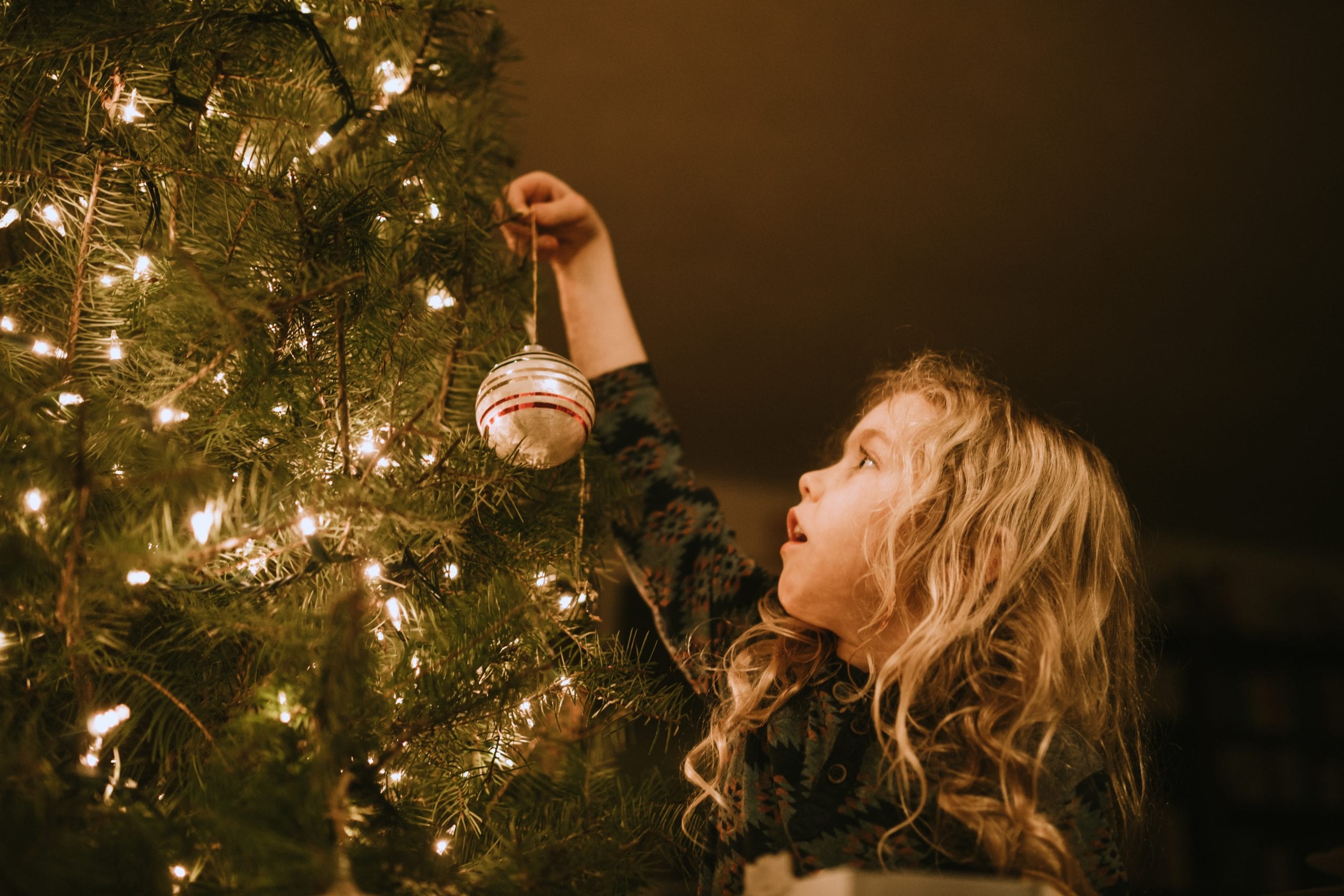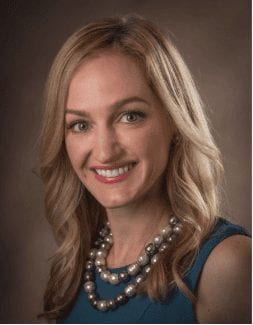Disclosure :: this post is sponsored by Children’s Hospital.
Christmas Tree Allergy: Yes, It’s Really a Thing, but Not From the Tree Itself!
 Oh Christmas tree, Oh Christmas tree, how we love to sing about you during the holiday season. With your delightful scent, sentimental ornaments, and twinkly lights, you surely bring a lot of joy! But is it true you can also make us sick?
Oh Christmas tree, Oh Christmas tree, how we love to sing about you during the holiday season. With your delightful scent, sentimental ornaments, and twinkly lights, you surely bring a lot of joy! But is it true you can also make us sick?
Congratulations! You’ve picked out the perfect fir, spruce, or pine. You’ve trimmed the branches, lugged the tree through the house, strung the lights, impeccably placed the ornaments with “help” from your little ones, scrubbed the sap off of your hands, and swept up all of those pesky needles. As you hum your favorite carol and climb up the ladder to place your topper, you suddenly sneeze, stumble into your prized possession, and end up with a scene fit for the Griswold family.
The term “Christmas tree allergy” was first coined by Dr. Derek Wyse in 1970. He discovered that some people with underlying allergies and/or asthma developed sneezing, wheezing, or transient rashes shortly after introducing Christmas trees into their homes. The trees were found to harbor mold spores as well as airborne pollens from ragweed, grasses, and other trees. These findings were also described by Dr. Lawrence E. Kurlandsky in 2007, who found that a variety of molds including the most allergenic ones (Alternaria, Cladosporium, Penicillium, and Aspergillus) reside on our adored (and adorned) conifers.
While there are other reasons to develop respiratory symptoms in the winter including a multitude of viruses, if you or a loved one have underlying allergies or asthma, it is worth considering the following measures.
Trees take baths, too
Before bringing your tree inside, use a leaf-blower to help remove mold spores and pollens. Some tree lots and farms have mechanical tree shakers to aid in this process. Next, spray your tree with water and allow it to dry overnight in the garage before bringing it inside. Although artificial trees pose less of a risk, they can still accumulate mold (especially when stored in humid climates), so they need baths too. An air cleaner with a HEPA (high-efficiency particulate air) filter may also help to keep mold spores in check. Even with the above preventative measures, molds germinate and can produce airborne spores within one week. Therefore, when the holidays are over, resist the urge to create a Mardi Gras tree and promptly remove the evergreen from your home. To aid in coastal restoration efforts, don’t forget to find out when tree recycling curbside pickup is!
‘Tis the season to be treated
The last thing you want to do this holiday season is taking a trip to the doctor’s office. Fortunately, most symptoms induced by Christmas trees are usually not severe enough to require medical attention. If you do develop symptoms, the first step is removing the tree (and potential allergens) from your home. For nasal symptoms such as congestion, runny nose, and/or sneezing, nasal sprays, and oral antihistamines are helpful. Check with your physician about dosing recommendations for you or your child. For asthma symptoms such as coughing, wheezing, and/or shortness of breath, use your albuterol rescue inhaler or nebulizer as previously instructed by your provider. If you are not getting relief as expected, it is important to seek medical attention, especially to rule out other causes for your symptoms such as respiratory viruses like the flu. Lastly, if you experience symptoms like the above, make an appointment with your local allergist to discuss if testing may be appropriate.
Wishing you and your families a healthy, happy holiday season!
Dr. Elizabeth L. Wisner, Children’s Hospital New Orleans Pediatric Allergist
 Practicing Allergy and Immunology is exciting to Dr. Wisner because “I have the opportunity to treat a broad array of conditions from relatively common allergic diseases to rare immunodeficiencies. I also enjoy having continuity with my patients and their families, as I believe this is a key component providing great medical care. My patients never cease to make me smile and continuously motivate me to be the best physician I can be!”
Practicing Allergy and Immunology is exciting to Dr. Wisner because “I have the opportunity to treat a broad array of conditions from relatively common allergic diseases to rare immunodeficiencies. I also enjoy having continuity with my patients and their families, as I believe this is a key component providing great medical care. My patients never cease to make me smile and continuously motivate me to be the best physician I can be!”
Dr. Wisner sees patients at the main campus of Children’s Hospital in Uptown New Orleans and Children’s Hospital Metairie Center.
To schedule an appointment at any location, please call our scheduling line at 504.896.2888.
















